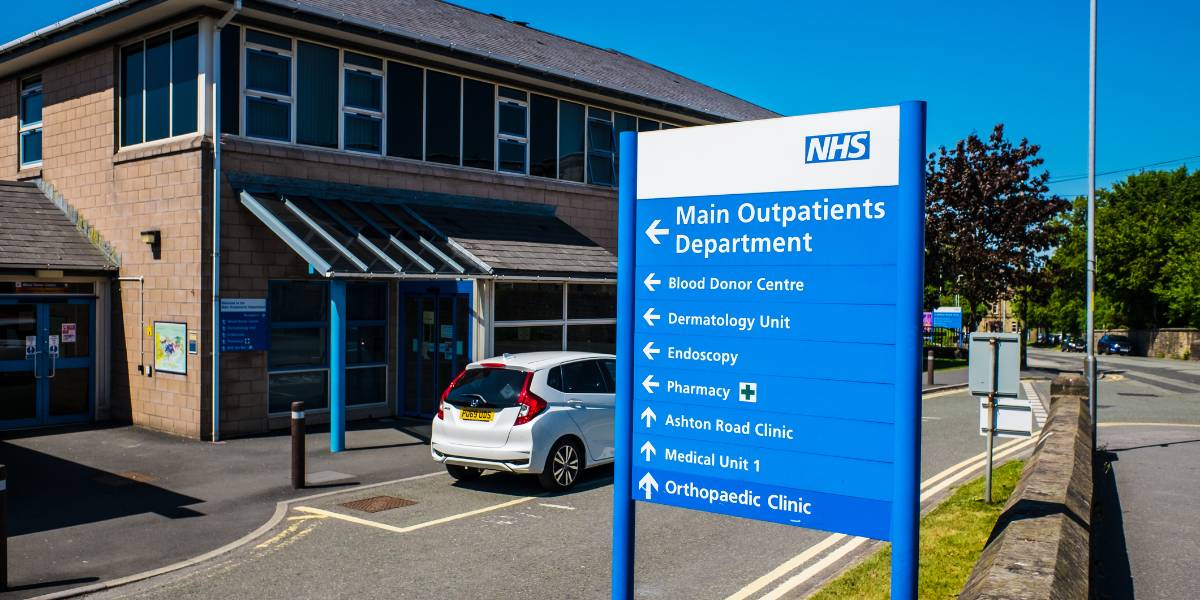The UK healthcare landscape is set for a major shake-up following Prime Minister Keir Starmer’s announcement that NHS England will be abolished in an effort to reduce bureaucracy and bring the health service under “democratic control.”
This move reverses the Conservative-led reforms of 2012 that created NHS England as an independent body overseeing the day-to-day running of the health service.
For people living with diabetes, these changes raise crucial questions about how care will be delivered, how decisions will be made and whether patient outcomes will improve as a result.
Why is NHS England being abolished?
Starmer has argued that NHS England has created “burdensome layers of bureaucracy without any clear lines of accountability.”
His government believes that absorbing its functions into the Department of Health and Social Care (DHSC) will reduce duplication, streamline decision-making and ensure that the government has direct oversight over the NHS.
The plan aims to cut down the workforce of NHS England, currently at 15,300 employees, by 50%.
This is projected to save “hundreds of millions of pounds” – funds that could, in theory, be redirected toward patient care. However, concerns have been raised about whether these savings will translate into improved healthcare services or if the restructuring will cause disruption to the already overstretched NHS.
- Cases of diabetic retinal disease are on the rise
- Diabetic retinopathy examinations attended more by people who follow doctor’s advice
- Plant-based pill shows promise in type 2 diabetes treatment
How does this affect diabetes care?
For the 4.3 million people in the UK diagnosed with diabetes – and the millions more at risk – these reforms could have a significant impact. Here’s what we might expect.
Localised decision making
One of the main arguments in favour of the changes is that they will allow local Integrated Care Boards (ICBs) to have greater decision-making power.
Currently, NHS England makes many of the top-down decisions regarding diabetes services, including funding, access to new treatments and clinical guidelines.
With NHS England’s functions being absorbed, regional NHS bodies could have more autonomy to tailor services to the specific needs of local populations.
This could be beneficial if local authorities take a proactive approach to diabetes prevention, education and management. However, there is a risk that disparities in care could widen if funding allocations are not equitable.
Impact on access to medications and technology
Decisions on which medications and diabetes technologies (such as continuous glucose monitors and insulin pumps) are made available on the NHS often go through NHS England.
The National Institute for Health and Care Excellence (NICE) will continue to evaluate cost-effectiveness, but the absence of NHS England may change how quickly these treatments are made available at a local level.
There are concerns that without a centralised authority, access to diabetes treatments may become inconsistent across different regions.
People living with diabetes will need clarity on whether the abolition of NHS England will affect their ability to access newer treatments and innovations.
Integration of diabetes care with preventative services
One potential benefit of these reforms is that they may allow for a more integrated approach between primary care, secondary care and preventative health services.
This could be particularly important for diabetes care, where early intervention is key to preventing complications.
However, past NHS reorganisations have often led to service disruptions.
There is a risk that restructuring could slow down the implementation of new diabetes care initiatives, particularly if local NHS bodies are unsure of their new responsibilities.
Workforce and specialist services
With NHS England’s workforce set to be halved, there are concerns about how this will affect the delivery of specialist diabetes services.
Diabetes teams, including endocrinologists, dietitians and diabetes educators, rely on NHS funding structures that have been overseen by NHS England.
It remains unclear how their roles and funding streams will be managed under the new system.
- W8Buddy app paves the way for enhanced weight management in the NHS
- NHS faces continued disruption as major IT outage affects 8.5m Windows devices
- Artificial pancreas: NHS rolls out hybrid closed loop systems for people with type 1 diabetes
Will these changes improve diabetes care?
The government argues that bringing NHS England’s functions back under direct ministerial control will lead to better outcomes, but critics warn that it could create new challenges. Key questions remain:
- Will local ICBs have the funding and expertise to effectively manage diabetes care?
- How will the government ensure that patients have equal access to the best treatments and technology across all regions?
- Will the changes streamline access to care or create further delays?
The success of these reforms will depend on how well they are implemented and whether they genuinely improve patient care rather than simply shifting administrative responsibilities.
As these changes unfold, diabetes patients, healthcare professionals and advocacy groups will need to keep a close eye on how local services adapt.
Ensuring that diabetes care remains a priority will be critical in shaping the future of the NHS under this new structure.





